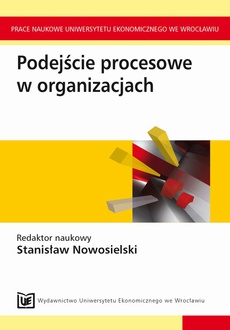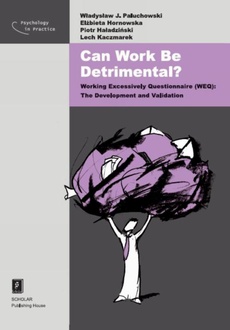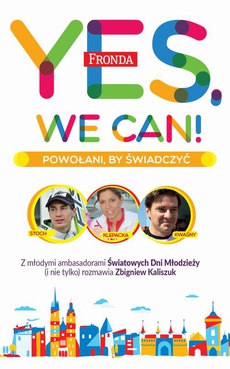POLECAMY

Can You Teach Better? Improving the Qualifications of Teachers and Trainers
Wydawca:
Format:
ibuk
This publication is a result of intensive work of experts in a two year project: “Laboratory of personal competences —improving qualifications of teachers and trainers (LA.PE.CO)”done within Lifelong Learning Programme — Leonardo da Vinci Partnership that was realized by institutions from Spain, Belgium and Poland between 2009 and 2011. The world around us undergoes constant changes. Pupils and students leave schools, the unemployed and employees who take part in different training courses get to constantly evolving organizations, where they need solid and up-to date knowledge and where, probably most of all, they use soft skills. Soft competences, such as cooperation, communication, negotiation, coping with stress, management of emotions and conflicts, assertiveness, creativity, the ability to build a team, increase the efficiency and effectiveness of the management process. We offer you a publication prepared by trainers for trainers. It contains review of selected European solutions related to system of adult education, bank of exercises on improving social competences and examples of good and bad practices in teaching social competences. Bank of exercises which is the most important part of this publication is a result of extremely useful sharing of knowledge and experience. Besides the part on good and bad practice it is a contribution of the international team of trainers into the improvement of teachers‘ qualifications and creation of unique know-how transfer. All the materials elaborated in this project and the whole bank of exercisers can be found on the project website: www.lapeco.eu.
| Rok wydania | 2011 |
|---|---|
| Liczba stron | 122 |
| Kategoria | Publikacje darmowe |
| Wydawca | SWSPiZ |
| ISBN-13 | 978-83-62916-22-1 |
| Numer wydania | 1 |
| Język publikacji | angielski |
| Informacja o sprzedawcy | ePWN sp. z o.o. |
Ciekawe propozycje
Can Poles reclaim their independence
do koszyka
Internes Can’t Take Money
do koszyka
Interns Can’t Take Money
do koszyka
Poland Can Into Space
do koszyka
Yes, We Can!
do koszyka
You Can’t Be Too Careful
do koszyka
You Never Can Tell
do koszyka
Spis treści
| PART I | 4 |
| INTRODUCTION — Izabela Kolodziejczyk-Olczak | 4 |
| PART II | 7 |
| ABOUT THE PROJECT — Marta Kedzia | 7 |
| PART III | 9 |
| SYSTEM OF ADULT EDUCATION — REVIEW OF SELECTED EUROPEAN SOLUTIONS | 9 |
| 2.1. The system of education in Poland — Izabela Kolodziejczyk-Olczak, Renata Figlewicz, Violetta Ożdżeńska | 9 |
| 2.1.1. System of Education | 9 |
| 2.1.2. Structure of Higher Education in Poland | 11 |
| 2.1.3. Professional Titles Awarded to Graduates of Institutions of higher Education | 11 |
| 2.1.4. Academic Degrees and Titles | 12 |
| 2.1.5. Adult Education — Methods | 13 |
| 2.1.6. Higher Education — Statistics | 14 |
| References: | 16 |
| 2.2. The system of education in Spain — Pilar Matas | 17 |
| 2.2.1. Principles and aims of education | 17 |
| Principles | 17 |
| Goals | 18 |
| 2.2.2. The organisation of teaching and learning during life | 18 |
| Teaching | 18 |
| Role of the teaching staff | 19 |
| 2.2.2.a. Preschool education | 20 |
| Goals | 20 |
| Contents | 21 |
| 2.2.2.b Primary education | 21 |
| Goals | 22 |
| Contents | 22 |
| 2.2.2.c. Compulsory Secondary Education (ESO) | 24 |
| Goals | 24 |
| Basic competences | 25 |
| 2.2.2.d. Baccalaureate | 25 |
| Goals | 25 |
| 2.2.2.e. Vocational Education | 26 |
| Extremadura | 26 |
| Catalogue of measures to be taken for the improvement the of quality of education in Extremadura26 Educational goals in Extremadura | 27 |
| Resources | 28 |
| 2.3. Competence-based education and training in Flanders — Department of Education, the Flemish Government | 29 |
| Nursery Education | 29 |
| Primary Education | 29 |
| Secondary Education | 29 |
| Higher Education | 32 |
| Adult Education | 33 |
| Lifelong Learning | 33 |
| 2.3.1. The key competences in higher education in Flanders | 34 |
| 2.3.2. Why competence based education in Flanders and the role of evaluation in competence based Education | 38 |
| 2.3.3. What competences do employers (from higher education) require employees to have | 40 |
| Resources | 42 |
| PART III | 43 |
| BANK OF EXERCISES | 43 |
| 3.1. Exercises — Spain | 44 |
| DO I KNOW MY LEMON? | 44 |
| BROKEN SQUARES | 46 |
| I AM LIKE THIS, YOU ARE LIKE THIS | 48 |
| THE MERCHANT AND HIS DAUGHTER | 53 |
| THE MANAGER | 55 |
| GESTURES | 58 |
| REINFORCING COLLAGE | 59 |
| GREETINGS CREATIVE | 60 |
| DAYS OF THE WEEK | 61 |
| THE CASH REGISTER | 62 |
| WHO SHOULD BE SAVED? | 64 |
| THE FLOWER | 65 |
| ACTING | 67 |
| TRUSTING OUR BODY | 68 |
| TEACHER OF PLASTICINE | 69 |
| 3.2. Exercises — Belgium | 71 |
| BOUWONDER: bringing social skills into a technical environment | 71 |
| EVENT MANAGEMENT | 72 |
| EVENT MANAGEMENT | 74 |
| INTERNET APPLICATIONS | 76 |
| KITCHEN TECHNOLOGY | 78 |
| ELEMENTARY SOCIAL SKILLS | 81 |
| WORKFIELD EXPLORATIONS | 83 |
| 3.3. Exercises — Poland | 85 |
| ASSERTIVENESS | 85 |
| CONSTRUCTING TOWERS | 86 |
| COMMUNICATION | 87 |
| SOLUTION OF CONFLICTS | 88 |
| LOUVRE | 89 |
| EXERCISE IN INTERCULTURAL COMMUNICATION | 90 |
| RED BALL, YELLOW BALL | 91 |
| WHICH IS BETTER AND WHY? | 92 |
| GROUP WORK WITH THE USE OF PSYCHOLOGICAL GROUP TRAINING METHODOLOGY | 93 |
| MOTIVATION TO CHANGE | 94 |
| TIME MANAGEMENT | 95 |
| CO-OPERATION AND JOINT ACTION | 96 |
| A FABLE — VIRTUAL TEAM-BUILDING, CO-ACTIVITY, CO-OPERATION | 97 |
| THE SQUARES — ONE-WAY AND TWO-WAY VERBAL COMMUNICATION | 99 |
| A PICTURE — NON-VERBAL COMMUNICATION | 100 |
| INSTRUCTION — A COMMUNICATION TRICK | 101 |
| ELEPHANT | 102 |
| MAP OF THE WORLD | 104 |
| THE READER | 105 |
| GUNNING FOG INDEX | 107 |
| PART IV | 113 |
| BANK OF GOOD/BAD PRACTICES | 113 |
| GOOD PRACTICE no 1 — Elementary Social Skills and Event Management | 113 |
| GOOD PRACTICE no 2 — Open Education System | 114 |
| GOOD PRACTICE no 3 — Kitchen Technology | 114 |
| GOOD PRACTICE no 4 — BouWonder | 115 |
| GOOD PRACTICE no 5 — Social Sciences | 115 |
| GOOD PRACTICE no 6 — Education of Adults | 116 |
| BAD PRACTICE no 1 — HRM and soft skills | 117 |
| BAD PRACTICE no 2 — ICT and statistical skills | 117 |
| PART V | 118 |
| SUMMING UP | 118 |
























